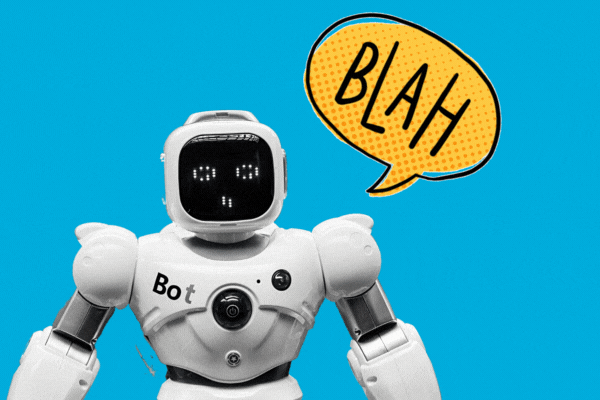GPT-3 (Generative Pretrained Transformer 3) is a state-of-the-art language processing AI model developed by OpenAI.
It is an AI which is designed to understand and generate natural human conversation and language. when used for chat and search purposes, in the form of ChatGPT, some people say it'll be the end of traditional search engines, but others aren't so sure. Let's figure it out, together.

With its quick response and ease of use, on the surface, ChatGPT looks like could replace traditional search engines. How many times have you clicked through a million, SEO-perfect pages and still not received your answer? How nice would it be to get a response straight away, in just a few succinct paragraphs?
This is what ChatGPT promises.
Ask the robot for a recipe for tiramisu, it spits out a pretty good recipe for tiramisu. Ask it about the meaning of life, it might get a bit confused. Even AI has its limits.
ChatGPT provides an easy way to find information immediately and simply. It's an AI-powered chatbot that helps you find what you want faster than ever before. It works by asking questions about what you're looking for, and then gives you results based on your response. The more information you give it, the better your results will be!
This changes how marketers approach content creation because they can move away from keyword-focused content that may not be relevant or useful. Instead, they can focus on creating meaningful conversations with their customers in order to help them find what they're looking for more quickly and easily than ever before.
So, what does ChatGPT mean for marketers, and how will they have to adapt to the new face of search marketing?
According to a recent study by Google, nearly half of all searches on mobile devices now begin with a voice command. This shift in user behaviour is only expected to continue as more people become comfortable talking to their devices—and as more devices are created with voice-activated abilities and features.
In response to this trend, tech giants like Google have been working hard on developing artificial intelligence (AI) technologies that can understand human speech and respond appropriately. In fact, Google has already released an AI assistant named Duplex that can make phone calls on behalf of users; book reservations at restaurants; or even schedule appointments at salons.
But what does this mean for marketers? With AI assistants becoming increasingly popular among consumers and businesses alike, it's likely that these chatbots will start stealing some market share from traditional search engines like Google or Bing.
It makes email marketing easier as well—if people are willing to use chatbots instead of emailing back and forth with sales, it'll remove the hassle of solving issues and give time back to sales and marketing.
In order to succeed in this new world, marketers will have to adapt:
1) Search algorithms will be based on user intent and intent-driven actions rather than keywords or links. This means that instead of focusing on keywords and links as ranking factors, marketers will need to focus on providing users with the right information at the right time in order to drive conversion or engagement.
2) The new face of search marketing will rely heavily on AI technology, which means marketers need to develop their own AI-based tools in order to stay competitive (and relevant).
But there are some issues with ChatGPT. The AI produces convincing and confident answers, which may not always be true. Sometimes the bot provides incorrect answers to questions, which seem correct to a casual observer. As these quickly-produced answers are just that, quickly-produced, they may begin to overshadow longer-form, more thoughtful responses. This spread of misinformation is already something the internet is struggling with.
Another issue is that ChatGPT makes it easy for users to find information without having to click on links—and this could lead to fewer clicks overall. This would mean less traffic to your site and less revenue from your SEO efforts.
With the nature of its succinct response, you might get a confused answer from AI if you ask it about the meaning of life, but at least you can scour through a bunch of think-pieces when using Google. So, will the new tech be a combination of quick-response and multiple, additional reading links?
So, right now, ChatGPT isn't replacing Google or Bing. But these companies will jump on the technology to not fall behind. This means marketers need to get ready for the change. Though this might not look like the removal of all search engines for chatbots, it will more than likely be a combination of both technologies.
